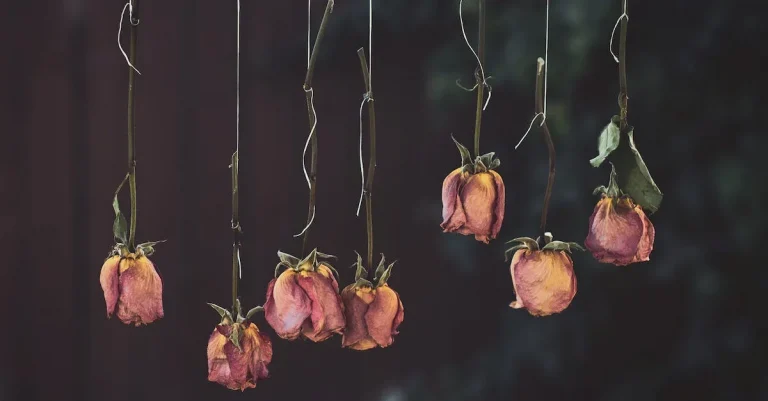The king of hearts is one of the most recognizable face cards in a standard 52-card deck. With his flashy crown and red robe, he stands out from the crowd. But beyond the surface, what does this optimistic ruler represent spiritually?
If you’re short on time, here’s a quick answer to what the king of hearts means: The king of hearts symbolizes leadership, compassion, emotion, partnership, and working harmoniously with others.
In this comprehensive guide, we’ll explore the deeper spiritual meaning and symbolism of the king of hearts in detail. We’ll cover the king’s associations with certain gods and historical figures, his link to astrology and numerology, what he represents in divination practices like cartomancy, and much more.
Basic Meaning and Symbolism
The King of Hearts is one of the most recognizable and iconic cards in a traditional 52-card deck. But beyond its familiar image, what does this royal figure actually represent?
At the most basic level, the King of Hearts symbolizes leadership, passion, and mastering emotions. As the counterpart to the Queen of Hearts in a deck, the King rules over the suit historically linked to love and relationships.
Let’s explore some of the common symbolic interpretations of this emotive monarch’s meaning:
Noble Leadership and Compassion
As royalty, the King of Hearts represents noble authority and wise leadership. His kind gaze conveys compassion. Unlike the stern King of Spades, the King of Hearts rules with empathy and emotion versus cold logic. He signifies using both the head and heart in balance to guide others.
Romance and Chivalry
Befitting the suit of hearts, the King is also a romantic symbol. He epitomizes qualities like passion, chivalry, and affection in relationships. Some interpret him as the ideal partner or soulmate—devoted, warm-hearted, and faithful.
His sword drawn in front of the vibrant red heart symbolizes his readiness to defend love and romance.
Maturity and Inner Fire
As the elder monarch compared to the younger Prince of Hearts, the King represents mature and mastered emotions. He has an inner fire and zest for life, achieving a powerful balance of intellect and feeling compared to a younger figure still learning emotional control.
The King signifies using enthusiasm and care to uplift others.
Business and Pleasure in Harmony
Interestingly, while the King of Hearts stands for affairs of the heart, he also does not eschew business or hard work. As a ruler, he must protect the realm and manage practical concerns. Therefore, symbolically he ties passion and responsibility together effectively in harmony.
His flowing robe and beard convey experience alongside his youthful face and posture.
| Positive Keywords | Negative Keywords |
|---|---|
| Warmth, compassion, romance | Overly emotional, jealousy, drama |
Link to Mythological Gods and Figures
The King of Hearts playing card has connections to several mythological gods and figures throughout history. The vibrant red color and royal status of the King is often associated with gods of passion, power, and leadership.
Dionysus
In Greek mythology, Dionysus was the god of wine, fertility, ritual madness, religious ecstasy, and theater. As a symbol of unbridled passion and desire, Dionysus has parallels to the fiery personality of the King of Hearts.
Dionysus was also known to wear robes of red and purple, similar to the attire of the King card.
Odin
In Norse mythology, Odin was a widely revered god associated with wisdom, healing, death, royalty, and the gallows. The latter connects with the suicide theme of the King of Hearts in playing card lore.
Odin also had one eye which could symbolize the King’s ability to focus clearly on his royal duties.
Osiris
The Egyptian god Osiris was regarded as the king and judge of the deceased. His red skin color links him to the vibrant hue of the King card. Osiris was also associated with fertility, vegetation, and the annual flooding of the Nile river, connecting him thematically to the Suit of Hearts in playing cards.
Numerological and Astrological Connections
The King of Hearts card is associated with the number 13 in numerology. This number represents transformation, death and rebirth, change. It is considered a powerful but unstable number.
In astrology, the King of Hearts is connected to the fire signs (Aries, Leo, Sagittarius). These signs represent leadership, creativity, passion. The element of Fire brings an enthusiastic spirit to this card.
The combination of the number 13 and the Fire element indicates the King of Hearts has a dynamic, transformative, charismatic energy. There is great potential for positive change or disruption with this intense energy.
Significance in Cartomancy and Divination
The King of Hearts holds special meaning in the context of cartomancy (using cards for divination) across various traditions. Often viewed as the “card of affection” its appearance frequently signals strong emotional bonds or intense romantic feelings.
Upright Interpretations
When the King of Hearts appears upright in a reading, common positive interpretations include:
- A mature, compassionate man who leads with his heart
- Strong bonds in current or future romantic relationships 💞
- Emotional balance, self-mastery
The King’s warm energy suggests emotional fulfillment is on the horizon. As the Labyrinthos Academy notes, “The King of Cups reflects the achievement of harmony between the head and the heart.”
Reversed Meanings
In the reversed position, potential interpretations include:
- Excessive emotion, drama or manipulative behaviors
- Difficulty balancing logic and feelings
- Repressed emotions
The King’s reversed energy implies issues with unhealthy attachment or lack of emotional mastery. As author Biddy Tarot writes, “The King of Cupsreversed often exposes strong emotions that are out of control.”
Symbolic Details
Beyond general meanings, the King’s details provide further symbolic significance:
- The fish emblem suggests flexibility, creativity, intuition
- His blue robe represents calmness, compassion
- The ship behind signals adventure, risk-taking
Analyzing these visual cues allows for deeper understanding in divination readings. As author Leeza Robertson explains, “The symbols in a Tarot card tell a story about its meaning.”
Importance in Games and Literature
The King of Hearts holds a special place in games and literature. Often depicted as the suicide king because he appears to be stabbing himself in the head, the King of Hearts has taken on unique symbolism over the centuries.
Significance in Playing Cards
In standard 52-card decks, the kings are considered the most powerful face cards. Yet the King of Hearts stands out with his odd pose. Why does he hold his sword behind his head? There are several origin theories:
- Some believe it references the historic figure Charlemagne, who was rumored to have died by stabbing himself in the head.
- Others link it to the biblical figure David, who killed Goliath by throwing a stone to his forehead.
- Some say it represents the martyrdom of Valentine, linking the card to themes of love and sacrifice.
Whatever its exact origins, the striking image has made the King of Hearts a focal point in card games. For instance, in Hearts, players try avoiding winning this king’s suit as it carries a penalty. The card also tends to feature prominently in magic tricks and cardistry displays.
Meaning in Literature and Film
The unusual design of the King of Hearts has inspired metaphorical uses in storytelling media over the years. For example, in Alice’s Adventures in Wonderland, the manic King of Hearts epitomizes irrational authority and poor leadership.
He carelessly orders beheadings, making him a dangerous, unpredictable figure.
More recently, the 2006 indie film King of Hearts used the card’s imagery to represent themes of sanity versus madness. And in the TV series Westworld, the suicide king symbol became connected to the highly lifelike android Hosts gaining consciousness, ominously foreshadowing coming events.
| Media Using King of Hearts Symbolism | Key Themes Evoked |
| Alice’s Adventures in Wonderland | Irrational authority |
| King of Hearts (2006 film) | Madness |
| Westworld (TV series) | Dangerous awakening |
So while the four kings in a deck may seem interchangeable at first glance, the King of Hearts stands out from the crowd. Whether hinting at themes of love, sacrifice, madness, or awakening, this striking figure continues to capture our imaginations across games, stories, and visual media.
Conclusion
The king of hearts stands out for his compassionate leadership and ability to rule peacefully alongside others. Beyond a simple playing card, he represents strong partnerships, emotional balance, creativity, and benevolent authority figures.
So next time you pull the king of hearts from a deck, think about his deeper significance. What guidance might this optimistic monarch offer you on your life journey?






